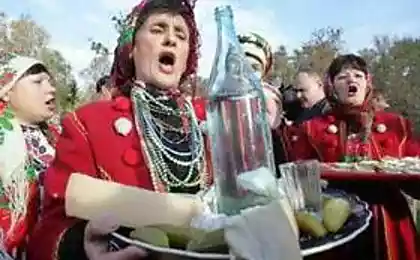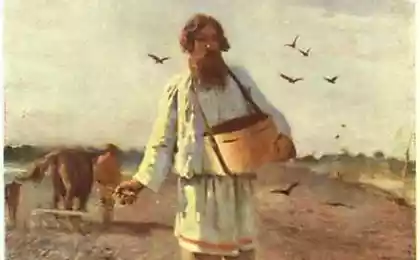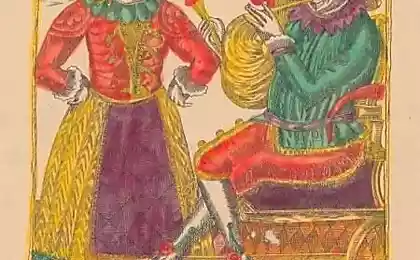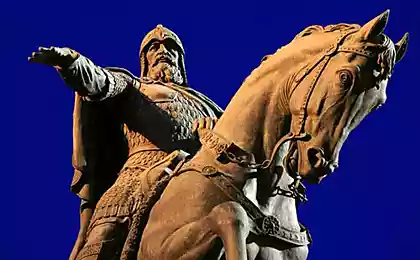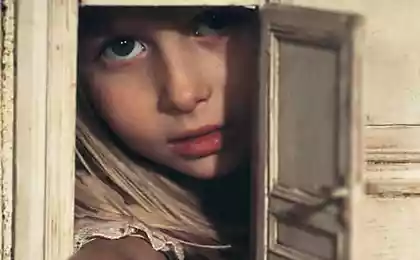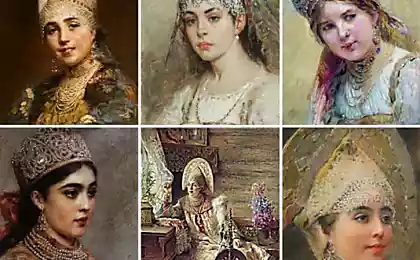924
Professions in Russia (7 photos)
The Russian people have never sat idle, except holidays allowed himself to relax a little.
Were in Russia profession respected and rare, complex and mysterious. Some do not come down to our times, the other received a new birth, and still others have disappeared altogether. What is the labor market in Russia?
Plevalschiki
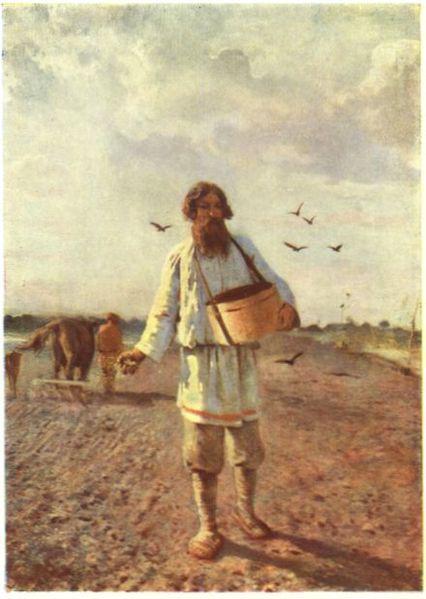
Plevalschiki earned their living not so than you might think. They sowed turnips. Why plevalschiki? Because the seeds of turnips are very small, in one kilogram - more than a million. Sow them in the usual way is simply impossible. That came up spitting out the seeds. Profession, this was one of the most prestigious in Russia and good plevalschiki valued its weight in gold.
Degtekury
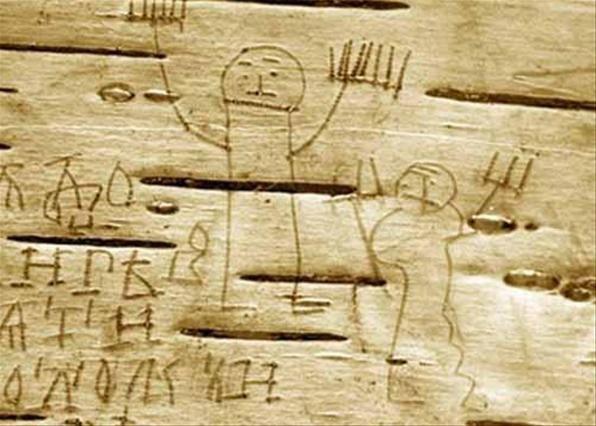
In Russia this profession was rather mass. Degtekury drove tar from birch bark. Tar is a versatile tool used for greasing the wheel axles, locks or boots, and for impregnation of sleepers and greasing the lower rims wooden frame to protect it from humidity and water. But most importantly, what was needed tar - is for the production of black (another Russian) Russian leather, special leather tanning with a pleasant resinous smell, which was for the manufacture of shoes and harness. Near degtekurami worked smolokury - they extracted resin from coniferous trees by distillation.
Coachmen and carters
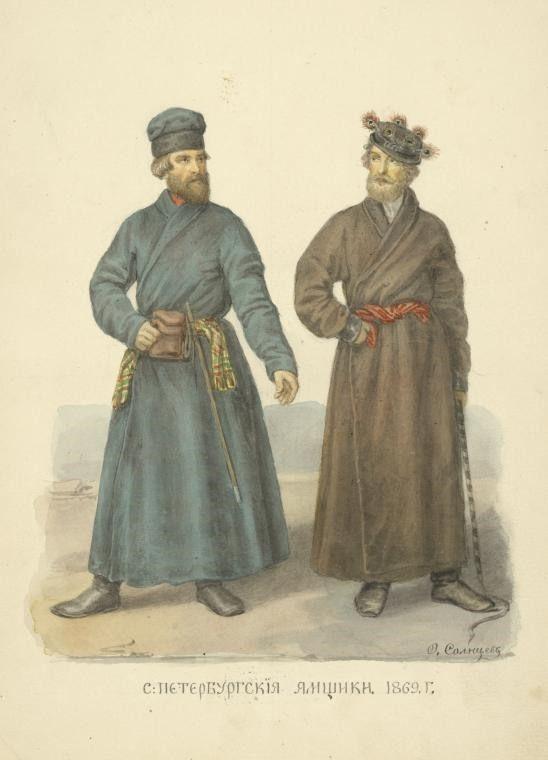
Job was so popular that it has left a huge cultural stratum in Russian art and literature. It should be distinguished: the drivers - it's sort of modern long-distance routes drivers and cab drivers - the drivers of urban taxis. Coachmen transporting not only people, but also postal parcels and correspondence, as well as a variety of goods, such as household goods stores. Among the cabs had their own classification. So, Vanya provides services economy class. They were mostly immigrants from the villages who do not have sometimes their vehicles. They had to take a horse and carriage for rent. During the trip Vanya took 30-70 cents. Taxi truck - lomoviki - worked horse-Heavyweights. People took reckless wealthy who had fed and beautiful horse, plus a very comfortable stroller. Likhachev evaluated their work in the 3 rubles. In addition to private traders working and city cabs - "duckies" or "frisky." They are easily recognizable by uniform and license plates. Order urban cab could be on a special exchange. Such a trip is rarely more expensive ruble.
Kosari
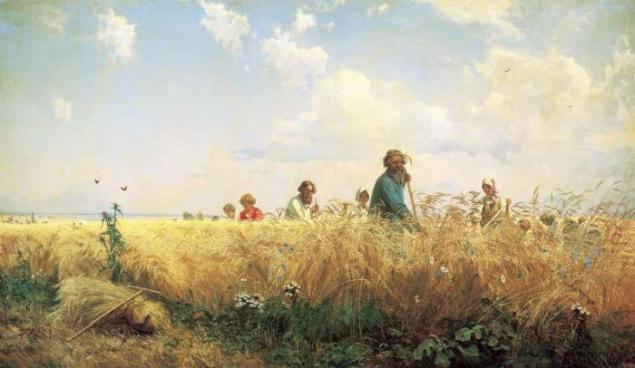
Grass mowing has long been perceived in Russia as a common cause. However, the main "strike force" were still mowers - are usually very strong and hardy men. If those were not enough, the mowing out and women, and the elderly. By the way, some older people could give odds to the young guys. Mow the beginning of the first dew, which moistened the grass and facilitate the progress of the spit. Certain hand positions, braids flapping, its direction - in the work of the many subtleties. From how well the mower works, it depended what the product will have a beast in the stable and the person on the table. Usually during mowing sang - together, having fun, creating a rhythm of work, because if one of the mowers hesitated - and close to the disaster. Hayfield - one of the most popular subjects in Russian art. Mow it easy, you say. Sure, but only if it is not about mowing the grass.
Peddlers
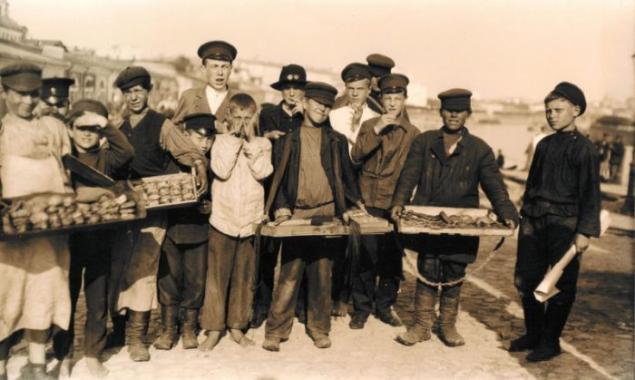
Peddlers, Ofen or call hodebschikami traded across Russia peasants. Its product (usually a variety of useful stuff), they were in big broadside boxes, hence the name - peddlers. Their society, their code, their sense of honor and even their slang, which is known only to the people of this profession differs from many other peddlers Russian workers. Word Formation in language Ofen happened in different ways: Russian words are mangled beyond recognition, were replaced in the proposal borrowing from other languages, and often simply made up. The ratio of people to the Ofen was different. On the one hand, Ofen were often the only source of news, story-tellers of tales and gossip, on the other - the Russian people somehow always wary of people offering to buy something.
Skomorokhy
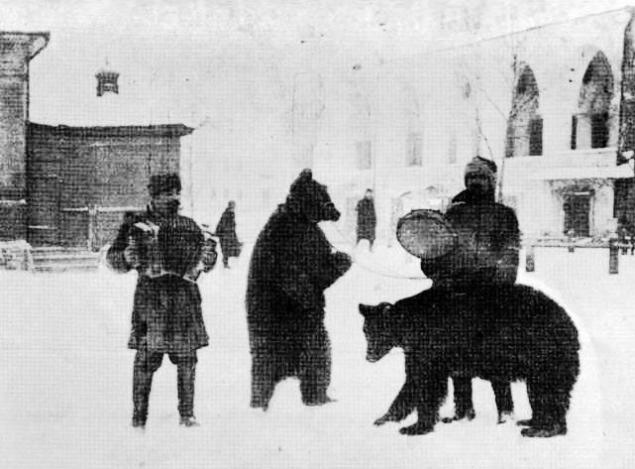
King of the court jester entertained, well, people on the streets and squares of clowns amused. Especially loved the clowns working at various fairs and folk festivals. Still would! People went good for a good joke and a new cap could bestow. Clowns were masters of all hands and wits, and musicians, and singers and performers of various scenes. People need the thrill? Here's a bear! I would like to field so hurried? Skomorokh constantly ready to perform all sorts of acrobatic pas. Each had his own buffoon roles: comedian, poteshnik, poseur, a buffoon. As is known, the authorities do not really complain about the people of this profession, but to catch buffoons was easy enough. At one point they had not been detained, roaming from one city to another.
Wailers
No mourners or voplenits, in Russia does not do any ritual action, be it a wedding or a funeral. Professionally trained from childhood to cry, because crying was to have a special melodic warehouse. The shrill wailing mourner, the greater the reward in the end it turns out. If tears for the dead were mostly relatives poured out frankly, not all brides, saying goodbye to my parents, it was possible to really grieve for her maiden life. That invited women who can shed tears for hours on end, accompanying cries of various kinds lamentations. Mourners were present during recruits wires. The Wailers were a mandatory attribute the lack thereof, for example, during the funeral was considered shameful.
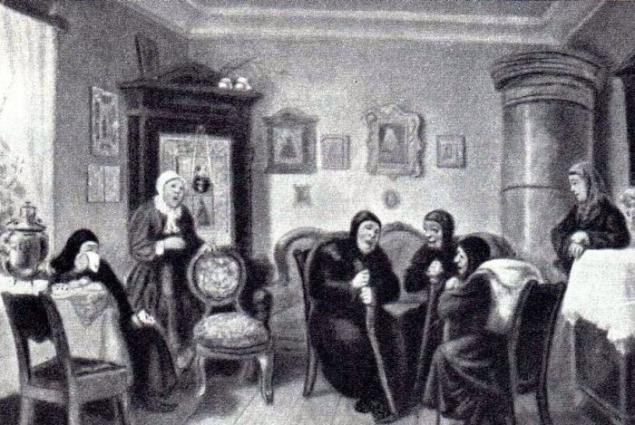
Were in Russia profession respected and rare, complex and mysterious. Some do not come down to our times, the other received a new birth, and still others have disappeared altogether. What is the labor market in Russia?
Plevalschiki

Plevalschiki earned their living not so than you might think. They sowed turnips. Why plevalschiki? Because the seeds of turnips are very small, in one kilogram - more than a million. Sow them in the usual way is simply impossible. That came up spitting out the seeds. Profession, this was one of the most prestigious in Russia and good plevalschiki valued its weight in gold.
Degtekury

In Russia this profession was rather mass. Degtekury drove tar from birch bark. Tar is a versatile tool used for greasing the wheel axles, locks or boots, and for impregnation of sleepers and greasing the lower rims wooden frame to protect it from humidity and water. But most importantly, what was needed tar - is for the production of black (another Russian) Russian leather, special leather tanning with a pleasant resinous smell, which was for the manufacture of shoes and harness. Near degtekurami worked smolokury - they extracted resin from coniferous trees by distillation.
Coachmen and carters

Job was so popular that it has left a huge cultural stratum in Russian art and literature. It should be distinguished: the drivers - it's sort of modern long-distance routes drivers and cab drivers - the drivers of urban taxis. Coachmen transporting not only people, but also postal parcels and correspondence, as well as a variety of goods, such as household goods stores. Among the cabs had their own classification. So, Vanya provides services economy class. They were mostly immigrants from the villages who do not have sometimes their vehicles. They had to take a horse and carriage for rent. During the trip Vanya took 30-70 cents. Taxi truck - lomoviki - worked horse-Heavyweights. People took reckless wealthy who had fed and beautiful horse, plus a very comfortable stroller. Likhachev evaluated their work in the 3 rubles. In addition to private traders working and city cabs - "duckies" or "frisky." They are easily recognizable by uniform and license plates. Order urban cab could be on a special exchange. Such a trip is rarely more expensive ruble.
Kosari

Grass mowing has long been perceived in Russia as a common cause. However, the main "strike force" were still mowers - are usually very strong and hardy men. If those were not enough, the mowing out and women, and the elderly. By the way, some older people could give odds to the young guys. Mow the beginning of the first dew, which moistened the grass and facilitate the progress of the spit. Certain hand positions, braids flapping, its direction - in the work of the many subtleties. From how well the mower works, it depended what the product will have a beast in the stable and the person on the table. Usually during mowing sang - together, having fun, creating a rhythm of work, because if one of the mowers hesitated - and close to the disaster. Hayfield - one of the most popular subjects in Russian art. Mow it easy, you say. Sure, but only if it is not about mowing the grass.
Peddlers

Peddlers, Ofen or call hodebschikami traded across Russia peasants. Its product (usually a variety of useful stuff), they were in big broadside boxes, hence the name - peddlers. Their society, their code, their sense of honor and even their slang, which is known only to the people of this profession differs from many other peddlers Russian workers. Word Formation in language Ofen happened in different ways: Russian words are mangled beyond recognition, were replaced in the proposal borrowing from other languages, and often simply made up. The ratio of people to the Ofen was different. On the one hand, Ofen were often the only source of news, story-tellers of tales and gossip, on the other - the Russian people somehow always wary of people offering to buy something.
Skomorokhy

King of the court jester entertained, well, people on the streets and squares of clowns amused. Especially loved the clowns working at various fairs and folk festivals. Still would! People went good for a good joke and a new cap could bestow. Clowns were masters of all hands and wits, and musicians, and singers and performers of various scenes. People need the thrill? Here's a bear! I would like to field so hurried? Skomorokh constantly ready to perform all sorts of acrobatic pas. Each had his own buffoon roles: comedian, poteshnik, poseur, a buffoon. As is known, the authorities do not really complain about the people of this profession, but to catch buffoons was easy enough. At one point they had not been detained, roaming from one city to another.
Wailers
No mourners or voplenits, in Russia does not do any ritual action, be it a wedding or a funeral. Professionally trained from childhood to cry, because crying was to have a special melodic warehouse. The shrill wailing mourner, the greater the reward in the end it turns out. If tears for the dead were mostly relatives poured out frankly, not all brides, saying goodbye to my parents, it was possible to really grieve for her maiden life. That invited women who can shed tears for hours on end, accompanying cries of various kinds lamentations. Mourners were present during recruits wires. The Wailers were a mandatory attribute the lack thereof, for example, during the funeral was considered shameful.

